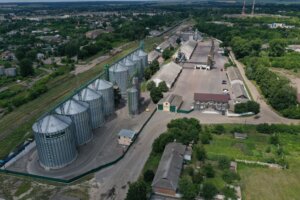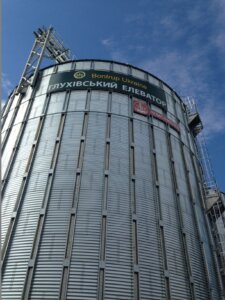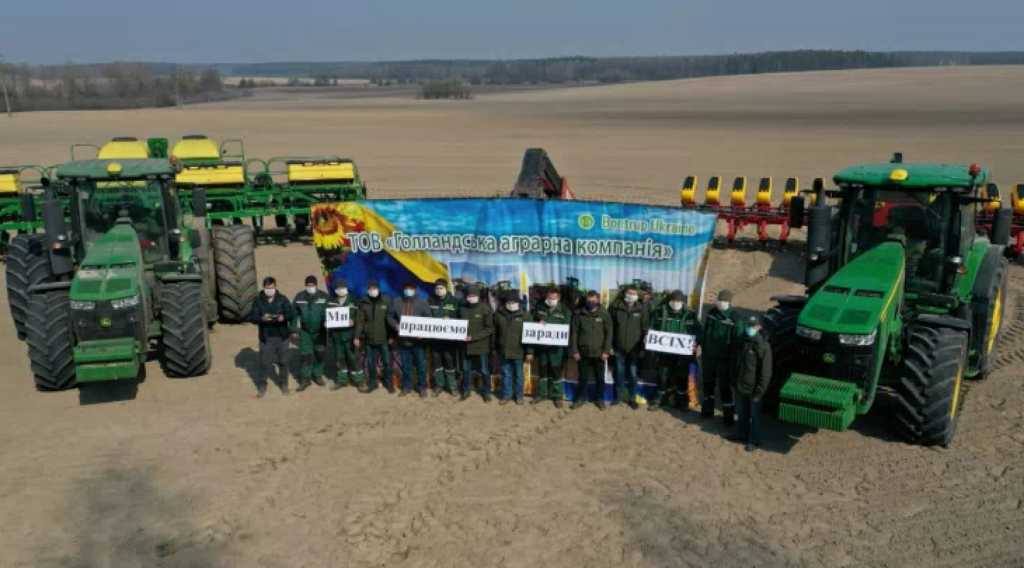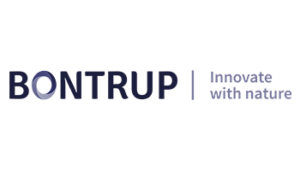Partnership focused on long-term sustainable economic growth
With a long history in farming, the Dutch Bontrup family business is keen to innovate with nature to feed society sustainably. Bontrup aspires to create new opportunities for sustainable agricultural production, whilst improving the livelihood of farmer communities in the Ukraine. The Dutch family business owns and operates about 22.000 hectares of fertile soil in the north east of Ukraine.
Svitlana Lakoba, General Manager of Bontrup Ukraine: “Agricultural development is one of the most powerful tools to boost shared prosperity and feed a projected 9.7 billion people by 2050. Agriculture is also crucial to economic growth: in 2019, it accounted for 9 percent of Ukraine gross domestic product (GDP). “
“Almost 15 years ago, we founded the agriculture business in the region of Shostka and Glukhiv. The Ukraine and especially these regions offer great opportunities for innovation in agriculture. It’s our ambition, together with our 300 Ukrainian employees to actively grow the business, and at the same time improve and protect the local environment and ecology”, Lakoba adds.
Farming for the future
Feeding the world’s growing population, while facing challenges such as unpredictable weather, efficient control of diseases and pests, scarcity of natural resources and available farmland, makes the need for innovation in agriculture even more essential. These global trends are influencing the overall sustainability of food and agricultural systems and the Ukraine is in a unique position to positively contribute to this change.

“Bontrup is committed to innovate and invest in sustainable agriculture methods to preserve soil fertility and reduce land depletion. In order to do this sustainably, Bontrup focusses on a number of measures ranging from scientifically proven crop rotation methods, preservation measures focused on soil structure to responsible and sustainable plant protection. This enables us to farm for the future”, says Svitlana Lakoba.
The 22.000 hectares in the region of Shostka and Glukhiv are particularly suitable for agriculture and dairy farming because of the type of soil and the favourable climate. The agriculture business focusses on cereals, oilseeds, industrial and fodder crops. The total gross collection of marketable products is on average 80 thousand tons per year.
 Bontrup Ukraine operates a highly sophisticated elevator complex for acceptance, completion, shipment and storage of products with a one-time capacity of 50-60 thousand tons.
Bontrup Ukraine operates a highly sophisticated elevator complex for acceptance, completion, shipment and storage of products with a one-time capacity of 50-60 thousand tons.
Crops are sold both in the Ukraine (sunflower, rye) and to foreign markets (wheat, corn, rapeseed). Sales contracts are mainly concluded with the world’s leading traders such as Nibulon, Glencore, Bunge, Agroprosperis, Cargill, and leading Ukrainian converters such as Kernel and MHP.
Strong Dutch-Ukraine investment partnership
In addition to the investments by the Bontrup family business, external credit facilities have been arranged. A 7-year financing agreement was signed with the Dutch Development Bank (FMO) which ends this Summer. To continue the investments a new agreement was signed with the Netherlands Enterprise Agency (RVO). The Netherlands Enterprise Agency supports entrepreneurs, NGOs, knowledge institutes and organisations. It aims to facilitate entrepreneurship, improve collaborations, strengthen positions and help realise national and international ambitions with funding, networking, know-how and compliance with laws and regulations. The Netherlands Enterprise Agency is a government agency which operates under the auspices of the Dutch Ministry of Economic Affairs and Climate Policy. Its activities are commissioned by the various Dutch ministries and the European Union.
These partnerships help to fund further expansion of the agriculture business in the Ukraine. The expansion plan consists of investments in farmland, machinery (e.g. tractors) and warehousing. The financing is also used to invest in new technologies (high standard dairy farm practices and agricultural farming) in the Ghlukov region of the Ukraine. From 2014 up to the end of 2025, about UAH 370.000.000,- will be allocated to support farmers in the Shostka and Glukhiv regions.
Innovate with nature together
At Bontrup our vision is to innovate with nature to build and feed a sustainable society. We define sustainability as working systematically to reduce negative and enhance positive impacts on people, society and environment by taking a value chain approach. Being a company eager to make tangible impact, we have decided to invest and innovate in those areas that we master and can actively influence.
In practice this means we systematically aim to reduce our water and energy consumption. Over the years, Bontrup Ukraine has decreased its use of electricity, natural gas, diesel, gasoline and water. In the near future Bontrup will explore options to generate energy from biogas.
Improving the livelihoods of farmer community in Shostka and Glukhiv regions
Bontrup actively contributes to improving the livelihoods of the farmer community in the region of Shostka and Glukhiv. Initiatives vary from improving the labour market by offering jobs to local residents, supporting education, health and social programmes.
Bontrup works in partnership with local residents and governments, such as village and city councils, to initiate and provide funding for the development of these programmes. Support is provided to educational and medical institutions. Since the start, almost 15 years ago, the ‘Bontrup’ volleyball and football tournament have become an annual tradition. Over the past three years, about 2.3 million UAH have been allocated for charitable assistance to the population of the villages in the Shostka and Glukhiv regions.

Driven by the shared passion to innovate with nature, Bontrup Ukraine’s 300 employees actively work to improve and protect the local environment and ecology.
“Collectively we make it is possible to achieve high yields, optimally using all production potential for the further sustainable development of the agriculture business, and at that the same time to preserve the land and the environment”, concludes Svitlana Lakoba.

